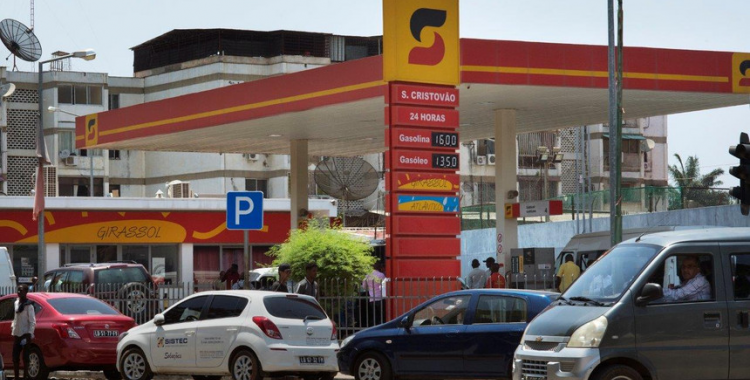In an analysis in which it presents the necessary conditions and possible solutions for the withdrawal of the fuel subsidy in Angola, to which Lusa had access, the Center for Studies for Economic and Social Development in Africa (CEDESA) first advocates the creation of mechanisms for transparency of budgetary financial flows and that funds saved by the State with the withdrawal of fuel subsidies are channeled towards responses to social problems.
Afterwards, he considers it necessary to "modify the structure of the oligopolistic market" for fuels in Angola and fundamental to "promote competition in the fuel distribution market" in the country.
And for this competition to exist, CEDESA points out the solution, which involves the division of Sonangol Distribuição into three companies and the privatization of two of these new entities.
In 2021, there were 951 fuel stations in Angola, of which 432 would be controlled by small unbranded operators.
Sonangol Distribuição is the largest in the distribution segment, with a market share (sales) of 64 percent, Pumangol is the second largest player, with 24 percent, with the remaining 16 percent being distributed by Sonangalp and Tomsa, says the CEDESA report.
"The question that arises is the definition of the structure of this market. A first analysis could appear that we are facing a competitive market, but the weight of Sonangol and Pumangol, representing a total of 78 percent of market share of sales, indicates that we are facing an oligopolistic market, in which few companies dominate the sector", he considers.
Well, "the price in oligopoly is fixed by the companies above the price level that would prevail in competition and below the profit-maximizing monopoly price level", he concludes.
Consequently, removing the fuel price subsidy in an oligopoly situation "would be equivalent to a price higher than the market equilibrium price and putting the population to finance higher profits of fuel distribution companies", he stresses.
Thus, for CEDESA, it is "essential, at the same time, that a gradual withdrawal of prices begins, increase the number of relevant operators in the market and put them in competition with each other, without anyone dominating the market".
And for that, he considers that "the most advisable thing was to split Sonangol Distribuição into three different companies and immediately privatize two of them".
"Thus, we would have at least five relevant operators in competition", he highlights.
On the other hand, the group of academics also defends that fuel subsidies should be removed without harming people, so there needs to be a direct subsidy for the most disadvantaged and social pass and another direct subsidy for companies.
In addition to the fact that vehicles with a smaller cylinder capacity and transport companies and the like should continue to have subsidized fuel prices, he stresses.
"The International Monetary Fund (IMF) orders the withdrawal of fuel subsidies, wherever they exist and Angola was no exception, creating this burden on the Angolan Government", says CEDESA in the note.
Recalling that the Minister of Finance herself, Vera Daves, in a recent interview, also stated that the withdrawal of fuel subsidies is "the elephant in the middle of the room, and with ballerina shoes", saying that the political decision would be made and just not was implemented because a mechanism has yet to be found to reduce the impact of the measure on the most underprivileged.
And she explained: "It's a blind subsidy, which everyone has access to, and with that recipe we could have a more targeted policy instead of subsidizing those who don't need it".
Among other arguments for the elimination of that subsidy, the minister pointed out "fuel leakage to neighboring countries, the lack of market share and the consequent loss of tax revenue, in addition to the issue of unequal treatment".
"There are several distortions to the market, but we are aware that the impact, mainly through transport, is considerable", commented the minister.
"By spending 2.8 to 3.7 billion euros per year on fuel subsidies, the Government does not spend them on the social sector, on education and health", for example, comments CEDESA.
So "you have to support it and convince the population", he says in the analysis and, in that sense, the Government's first task, in the opinion of CEDESA, is to create such a transparency mechanism, eventually a 'site', he suggests, so that the Government explain to the population how subsidy funds will be channeled to other sectors, clarifying their plans.
"The creation of a Transparency Mechanism that can be consulted by all, explaining where the money goes, how much it comes out of fuel subsidies and where it ends up in the various sectors of the budget" is, in the opinion of academics, fundamental, for the population to see the benefits .
"The starting point is that there will not be a saving of all the values indicated as a cost, 2.8 to 3.7 billion euros, per year, and that there are sectors and populations that must be protected. populations with lower incomes and the areas of transport and food and agricultural distribution", emphasizes CEDESA.
Therefore, citizens who use fuel and have low incomes would receive a direct subsidy from the State with a view to mitigating the negative effects of rising fuel prices.
In addition, a reduced value social pass could be created, which would allow any citizen to use transport without repercussions on the increase in fuel costs, while companies would receive funds so as not to increase prices.







